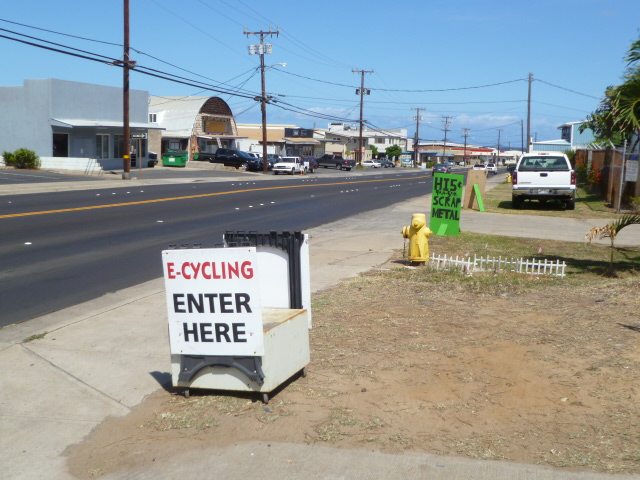
The Pros And Cons Of E-Cycling
Mandatory e-cycling is already enshrined in law in 25 states in the United States, but remains a divisive issue.
It is a agreed that a way must be found to deal with the substantial number of electronic goods falling out of use each year, the number of which is likely to increase as consumer electronics continue to grow in popularity.
Figures from the United States Consumer Electronics Association (CEA) revealed each household in the country now owns approximately 24 electronic items – and the picture is similar in other developed countries.
However, the implementation of e-cycling schemes brings with it both strong supporters and opponents.
Pros of E-Cycling
E-cycling allows for the reuse of important elements in electronics, thereby increasing their lifetime.
The benefits of this can be classed as two-fold; reusing components is greener as it reduces waste and removes the need for the processing of new components.
This is beneficial for business as it saves money in manufacturing the new component, while it is also advantageous for the environment by removing the need for more raw materials and the energy and resources in processing and distributing these.
With China looking to reduce its rare earth exports, which are valuable components in consumer electronic products like iPhones, reusing components is also taking on a new importance for the industry.
There is also evidence to suggest e-cycling is emerging as a profitable industry in the United States.
Figures released recently from International Data Corp show the country’s electronics industry treated around 3.5 million tons of electronic scrap in 2010, which brought with it $5.2 billion (£3.3 billion) in revenue.
Out of the 182 organisations surveyed by the independent research group, almost 79 percent said their e-waste was recycled within the country – a figure which perhaps quells the criticism of those who believe e-cycling takes place in developing nations.
Industry also appears to be backing e-cycling, in the United States at least. Earlier this year, the CEA launched the eCycling Leadership Initiative, which intends to see one billion pounds of electronics recycled annually by 2016, a three-fold increase on the levels seen during 2010.
If not recycled properly, this would create enough electronic waste to fill a NFL football stadium.
Cons
Those who class themselves as against e-cycling schemes are generally not opposed to electronic recycling in principle, but rather object to the way in which schemes are implemented, claiming they bring with them unintended environmental damage.
There are concerns that developed nations could ship their electronic waste for processing in emerging nations, exposing these countries to the dangers of breaking electronic materials – which often contain heavy metals – without any of the benefits.
Shipping e-cycling overseas also removes some of the environmental advantages used as an argument for e-cycling, while there are worries about the legitimacy of some of the e-cycling schemes running.
Aside from these concerns about where the e-waste is processed and who by, businesses currently have to contend with the nuances of the legislation enacted by the different states.
For example, in California, which was the first state to pass an e-cycling law in 2003, a fee is added to the cost of the product to cover recycling when it comes to disposal, but in the other 24 states the responsibility lies with the manufacturer.
Furthermore, nationally harmonising the legislation is still some way off, according to Jason Linnel, executive director of the National Center for Electronics Recycling.
Speaking to IQPC, he explained: “We’re trying to work on harmonization projects that deal with things like the registration process, the performance measures, the best practices that should be followed by collectors ? things that can be harmonized across the state laws but don’t require a full?scale legislative revisions of all the laws to be exactly like the same model.”
About Excess Logic
Excess Logic provides e-waste recycling services in San Jose, Santa Clara, Milpitas, Fremont, Sunnyvale, Mountain View, Cupertino, Palo Alto, Redwood City and SF Bay Area, California:
- IT Asset Recovery Solutions
- Surplus Equipment & Excess Inventory Liquidation
- Electronics Recycling & E-Waste Recycling
- Computer Disposal & Electronic Recycling
- Data center equipment recycling
- Data destruction & sanitization
- R&D, lab & biotech equipment recycling
Your job is just to get your IT assets to your front door and call us (408)-403-5549. Using our stringent environmentally ethical guidelines we ensure the best management of your e-waste and surplus electronics.
Contributor: Timothy Haïdar, EIC
Source